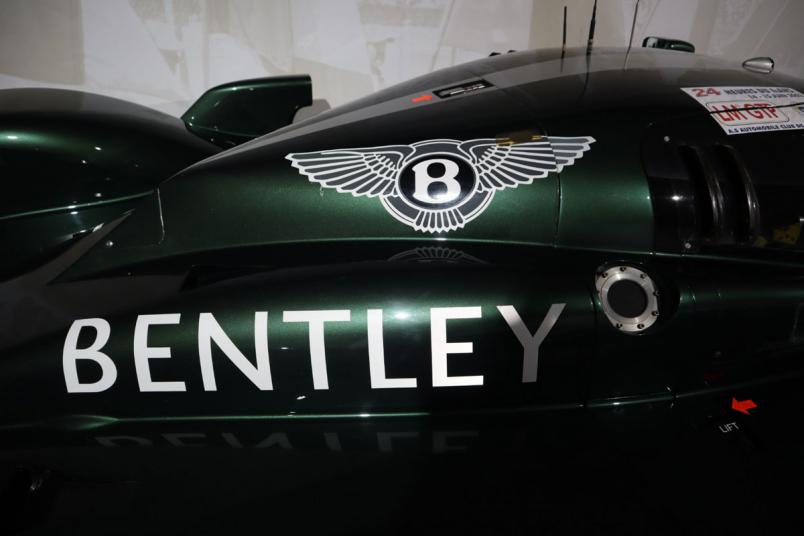 Bentley SPEED 8
Bentley SPEED 8
Bentley - A most excellent strategy
12 February, 2025
Bentley Boys - Back at Le Mans in 2001
The 69th 24-Hour Endurance Race
Bentley, a five-time winner of Le Mans, returned to Sarthe in 2001 for the first time since racing Cricklewood Bentley Speed Sixes to their fourth consecutive win in 1930—a gap of 71 years.
British flags were out in force, as another famous British marque, MG Sport & Racing Ltd, also made its return for the first time in 36 years with the MG-Lola EX257, a car built specifically for MG by Lola for the Le Mans race.
But... is it a Bentley?
In 1998, the Volkswagen AG group went shopping and acquired Bentley, Bugatti, and Lamborghini.
Skoda had been acquired in 1991 and SEAT in 1986.
Audi had been part of Volkswagen since 1964 and was the chosen marque to race successfully at Le Mans.
First Visit, Third Place
- 1999: Audi achieved third place on the podium in their first outing at the Le Mans 24 Hours.
- 2000: Audi claimed all three podium places.
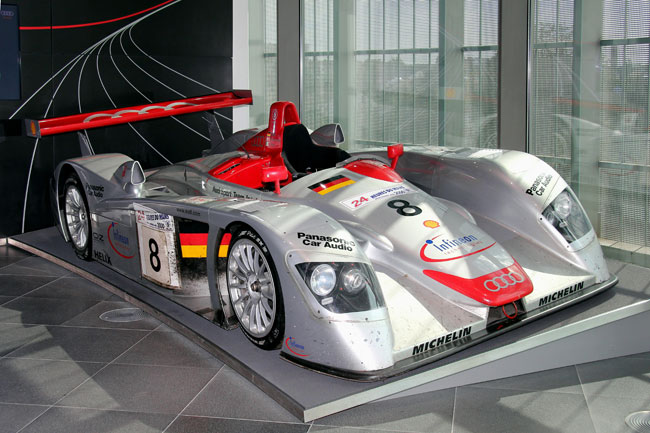
Pitching a Bentley with an Audi Engine?
If you think about it, virtually all brands—including Bentley, Rolls-Royce, Bugatti, Jaguar, and Alvis—started out by developing engines built on a rigid chassis.
Then, coachwork companies would build the body on top of the rolling chassis, which included the chassis, drivetrain (engine, gearbox, differential, axles, wheels), suspension, steering system, and radiator.
It was common practice for a customer to order the rolling chassis from the manufacturer and then go to a coachbuilder of their choice to request an open two-seater, four-seater, saloon, or open-top body to be mounted on the chassis, along with a choice of upholstery, fabrics and styling.
Some car manufacturers had in-house body designs that customers could accept as-is or take to a coachbuilder for modifications.
Certain coachbuilders would independently order chassis from manufacturers and create design options, giving customers a “one-stop shop,” bypassing the manufacturer altogether.
Brand Identity
The constant elements were the chassis and the engine, with performance and reliability being key factors in promoting the manufacturer’s brand—the very essence of what the Le Mans endurance race was all about, especially given the rugged, unforgiving road conditions of the early 1900s.
In many cases, the radiator grille and the badge upon it were the only indicators of the manufacturer’s brand.
So, in 2001 Bentley, now based in Crewe, was back—Fantastic! But… it was utilising the 3.6-litre V8 from the Audi R8.
After Qualifying
16th June 2001, 4pm local time.
48 cars on the grid.
Audi Sport Team Joest (Audi R8) was on pole and second.
3rd: Champion Racing, making it three 3.6 L R8's at the front.
4th: A Dome S101 (Judd GV4 4.0 L).
5th: Johansson Motorsport R8.
6th: Chrysler Mopar 6.0 L V8.
7th: Team Bentley No. 7 (Brundle/Ortelli/Smith).
8th: A Cadillac Northstar 4.0 L.
9th: Team Bentley No. 8 (Andy Wallace/Butch Leitzinger/Eric van de Poele).
10th: The French Courage team with a Judd GV4 4.0 L V10.
The MGs in the LMP675 (Le Mans Prototype) were in 14th and 17th.
The weather, dry at first here, but not over there….
And they were off . . .
MG, in their MG XP20 2.0 L Turbo I4s, with their bright day glo green noses, were in 6th and 7th place within half an hour.
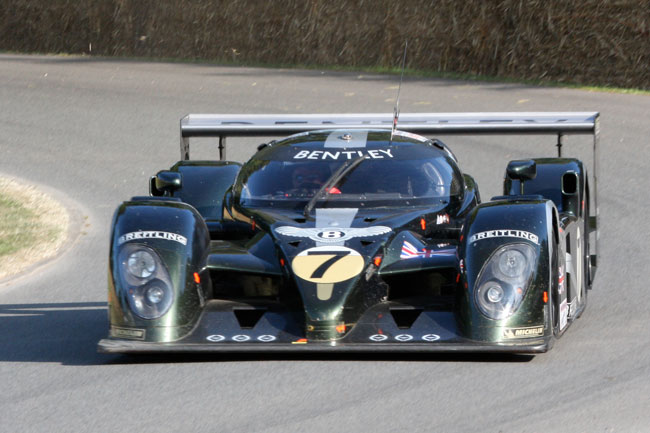
Seven laps in, Martin Brundle in the No. 7 Bentley slipped past Laurent Aiello in the No. 2 Audi, and Bentley was leading the field, viewed by 220,000 spectators.
In the early stages of the race it was completely dry at the pits, but pouring down with cars aqua-planing on slick tyres out on the Porsche Curves and a six car crash at Arnage.
Lots of damaged cars going into the pits and debating choice of tyres.
And so the battle went on, with the Audis and the Bentleys vying back and forth, punctuated by rain, pace cars, sun, and downpours.
Could Bentley Triumph?
Shades of the 1920s—could the Bentley Boys triumph on their first outing?
After Andy Reid took pole position for MG in the smaller LMP675 class and forged ahead, at one point reaching fourth position, the MG No. 34 was out after 408 km / 254 miles on its 30th lap due to oil pressure problems.
First Bentley is out
The Bentley No. 7 (Team Brundle) succumbed on its 56th lap, stuck in top gear with water flooding the gearbox actuator, and a fire breaking out due to overheated turbochargers after 761 km / 473 miles.
Strewn in her wake
On lap 92, after 12 and a half hours and 1,252 km / 778 miles, the second of the 2.0-litre MGs (No. 33) in the smaller prototype class was out.
At just over halfway through the race, she was the 19th casualty. However, behind her, a 3.0 L Nissan, a 3.2 L Peugeot, the 3.6 L Bentley R8, two Audi R8s, two 4.0 L Elans, three 4.0 L and a 3.4 L Judd, a 4.0 L Cadillac, a 6.9 L Ford, and three 8.0 L Chrysler Vipers lay strewn in her wake.
Neither Bentley was immune from the rain, which challenged exterior visibility. Water penetrated the cockpits as well, compromising the gearbox electronics and radio communications.
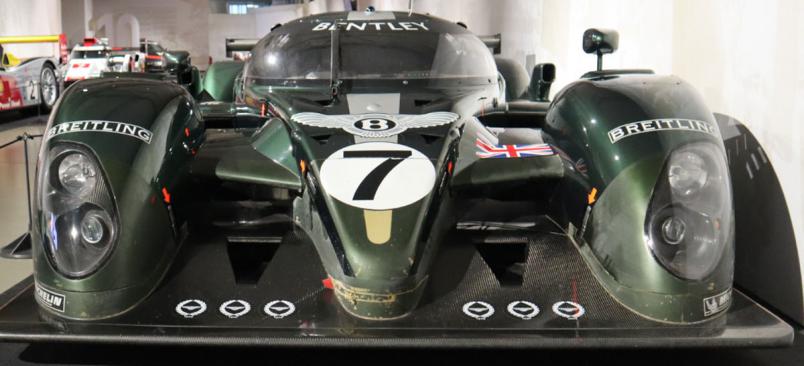 The 2003 Bentley Speed Eight
The 2003 Bentley Speed Eight
Le Mans, so much drama in the first of the 24 hours
Twenty Race Finishers in Le Mans 2001
Sunday 17th June 2001
Out of a field of 48 cars, 27 did not finish (DNF), and 1 was not classified (NC) — in this instance, a Porsche falling short of the minimum distance required for the vehicle category during the 24-hour period.
There were 20 finishers, with the German Audi teams taking a 1-2 win. The No. 1 Audi team (Biela / Pirro / Kristensen) completed 321 laps, averaging 180.9 km/h and 4365.6 km, taking the top spot.
The Winning Car: Audi Sport Team Joest
Taking a comfortable 1-2 win, with one lap between them, the winning car, with 321 laps, was driven by Frank Biela, Emanuele Pirro, and Tom Kristensen. It was the same team who won the previous year in 2000, driving an Audi 3.6 L Turbo V8 once again, well in fact not quite the same engine.
Though not disclosed prior to the race a new innovation had been implemented on the Audi R8 enhancing power and torque, engine responsiveness, fuel consumption and engine start time.
Called TFSI 'Turbo Fuel Stratified Injection' it utilises direct fuel injection, where fuel is injected directly into the combustion chamber instead of into the intake manifold.
Just another fine example of ‘Vorsprung durch Technik.’
2nd: Audi Sport Team Joest Team 2:
Rinaldo Capello, Laurent Aiello, and Christian Pescatori came in second place, just one lap behind. Pescatori had the fastest lap, which was 3 minutes 40.497 seconds.
3rd: Team Bentley:
The Bentley EXP Speed 8 (No. 8) was similarly affected by water ingress, but survived, with drivers Andy Wallace, Butch Leitzinger, and Eric van de Poele taking 3rd place with 306 laps — some 204 km / 126 miles behind the leaders.
Bentley Podium Finish
So, Team Bentley joined Audi on the podium in 3rd place and won the Le Mans GT Prototype category.
But not one, but two Audi R8s had absolutely cruised home to achieve their second consecutive 1-2 win.
Best of the Best
Podium Team Travel 397 Miles Less Than 2000 Race
One year earlier, in bright sunshine, the same winning 1st-podium Audi team, using the TFSI-less engine, traveled 47 laps further than in 2001, completing 368 laps within the 24 hours.
During the 68th Le Mans in 2000, they traveled 47 (the circuit is 13.605 km / 8.454 miles) laps further, equating to 639 km / 397 miles more than the rain-soaked track of 2001.
The years highlighted below demonstrate the dramatically increased challenge to the resilience of man (and elite drivers, at that) and machine, caused by unfavorable weather conditions affecting lap totals.
However, the fastest lap time of 223.597 km/h was only 1.735 km/h (there were some dry patches) lower than in 2000.
| Le Mans Dates | Edition | Weather | Laps |
|---|---|---|---|
| 2003 - June 14/15 | 71st | Sunny | 377 |
| 2002 - June 15/16 | 70th | Hot & Dry | 375 |
| 2001 - June 16/17 | 69th | Appalling weather | 321 |
| 2000 - June 17/18 | 68th | Sunny | 368 |
| 1999 - June 12/13 | 67th | Dry | 365 |
| 1998 - June 6/7 | 65th | Mostly Cloudy | 351 |
| 1997 - June 14/15 | 64th | Dry | 361 |
| 1996 - June 15/16 | 63rd | Dry | 354 |
| 1995 - June 17/18 | 62nd | 17hrs steady rain | 298 |
2001 - Audi 1st. Audi 2nd. Bentley 3rd. Chrysler 4th.
Audi comfortably dominate the 2001 earning Tom Kristensen his 3rd Le Mans win and Audi's second.
The Chrysler prototype with a Mopar 6.0 L V8 drove 8 laps less than the Bentley to come in 4th place, 194 miles behind the victor.
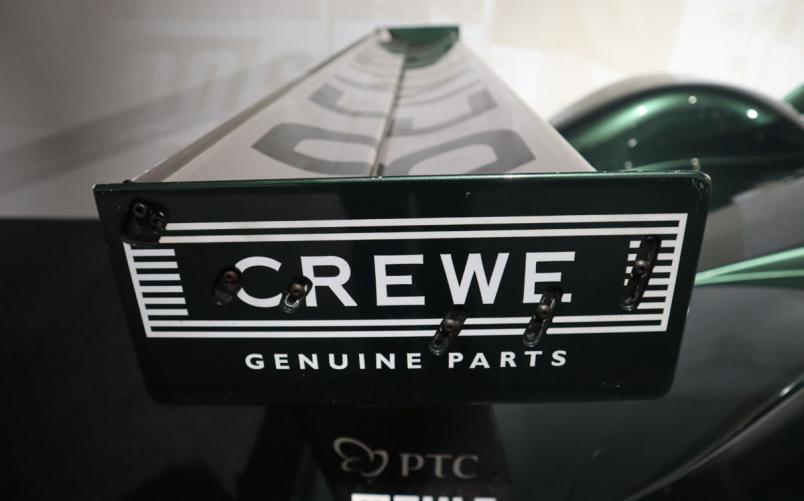
Le Mans 2002 - Audi Hat Trick ! !
Saturday 15th June 2002, 4pm local time
The weather was hot and dry at Le Mans for the 70th race.
The Freisinger Motorsport team matched Audi's winning lap total of last year (321) in their Porsche 911 GT3 RS (996) but finished in 17th place in 2002.
However, that is, at face value, slightly misleading.
The track was lengthened between November 2001 and February 2002 by 275 metres.
Work between the Dunlop Bridge and Esses extended the lap from 13.605 km to 13.880 kms (8.454 miles to 8.625 miles)
Only one Bentley
Meanwhile, Bentley was back, with the 2002 Peter Elleray variant which included a 4.0-litre engine, but was fielding a single car due to budget constraints.
Qualifying produced the following 12 teams at the start of a race with fifty cars taking part:
Pole Position: Audi Sport North America (Audi's 3rd consecutive).
2nd: Audi Sport Team Joest took second place with car No. 1 (Team Frank Biela/Kristensen/Pirro).
3rd: Herbert/Pescatori/Capello and their R8s.
4th: PlayStation Team Oreca: Dallara SP1
5th: Racing for Holland: Dome S101
6th: MG Sport & Racing Ltd: MG-Lola EX257 in sixth place and also in 12th.
7th: PlayStation Team Oreca: Dallara SP1 (Chrysler)
8th: Team Cadillac: Cadillac Northstar LMP02
9th: Panoz Motor Sports: Panoz LMP01 Evo
10th: Team Cadillac: Cadillac Northstar LMP02
11th: Team Bentley EXP Speed 8 (No. 8) had a minor crash in qualifying.
12th: 1MG Sport & Racing Ltd: MG-Lola EX257
Twenty-Six of the fifty starters finished.
The Audi R8's finish was a swap between pole and second from the starting lineup, with Tom Kristensen picking up his 3rd consecutive, but 4th Le Mans win.
It was also the first time that the same driving team had won on three consecutive occasions.
Audi had earlier, in March, also won its 3rd consecutive win at the 12 Hours of Sebring at the Sebring International Raceway, Florida.
Team Bentley's only car, upgraded to a 4.0-litre Turbo V8 and driven by Andy Wallace, Eric van de Poele, and Butch Leitzinger, completed 362 laps and took 4th place.
The Bentley's 13-lap variance to the winning Audi was not dissimilar to 2001.
Both of the British MGs went out after 129 laps (gearbox failure) and 219 laps (engine failure), respectively.
The winning Audi team completed 375 laps of the extended circuit length. This equates to 382.57 laps of the previous circuit length, an increase of 61.57 km.
2002: Audi 1st - Audi 2nd - Audi 3rd - Bentley 4th
Weather, Skill, Output: 2002 vs 2001 Mileage
Compared to the rain-drenched 2001 race at Le Mans, the winning Audi R8 car completed an additional 878.47 km or 520.5 miles in the 2002 Le Mans 24 hours.
A 19% increase.
Looking back at 17 hours of steady rain in 1995
The dry weather conditions of 1996, compared to the previous year's 17 hours of steady rain in 1995, showed an increase from 298 laps to 354 laps travelled by the winner.
In terms of distance: the increase was 731.6 km or 473.4 miles.
That is an 18.7% increase.
Le Mans 2003
Saturday 14th June 2003, 4pm local time
71st Le Mans 24 hour Endurance race .
The all new Bentley Speed 8 has been completely revamped, with a new monocoque, bodywork, and suspension retaining only the 4-litre direct injection engine from 2002 according to Peter Elleray, Chief Designer of the Speed 8 project since it began in September 1999.
Tom Kristensen winning for Audi team last year is driving for Bentley this year and is in pole position having set the fastest overall lap time in the second qualifying session.
Derek Bell, a Le Mans competitor on 26 occasions and five-time winner, was seen driving the brand-new 200 mph Bentley Continental GT around the track before the race.
Final Standings 2003:
1st: Team Bentley (No. 7) - Bentley Speed 8 (4.0-litre Turbo V8) with Capello/ Kristensen/ Smith.
Winner: 377 laps
2nd: Team Bentley (No.8) - Blundell/Brabham/Herbert
Position: 2nd overall
Laps: 375
3rd: Champion Racing - Marco Werner, Michael Krumm, Philipp Peter - Audi 3.6L Turbo V8
Position: 3rd overall
Laps: 372
Audi Sport Japan Team Goh Seiji Ara, Jan Magnussen,Marco Werner Audi 3.6L Turbo
2003: Bentley 1st - Bentley 2nd - Audi 3rd - Audi 4th
The most successful driver in Le Mans History
It was Bentley's 6th Le Mans victory, and for Tom Kristensen, who is currently the most successful Le Mans winner in the history of the race, his fifth of nine Le Mans wins.
Audi 3.6L Turbo V8's came in 3rd and 4th position with Champion Racing and Japan Audi Sport Japan Team Goh with 372 and 370 laps respectively.
Bentley interrupted Audi's winning streak of three consecutive Le Mans wins.
Audi would resume normal service in 2004 and continue winning until 2014, except for Peugeot's victory in 2009.
Toyota Needs One More Win to Equal Bentley's Record
Manufacturers' Wins
As of 2024, Porsche with 19 victories has the most wins at Le Mans, followed by Audi (13), Ferrari (10), Jaguar (7), and Bentley (6).
Impact of Success
| Year | Unit Sales | Yr on Yr Change % | Market Share Change % |
| 2000 | 571 | - | 0% |
| 2001 | 474 | -16.99% | -27.82% |
| 2002 | 430 | -9.28% | -11.02% |
| 2003 | 342 | -20.47% | -26.29% |
| 2004 | 3,011 | 780.41% | 87.39% |
| 2005 | 3,477 | 15.48% | 13.45% |
| 2006 | 3,275 | -5.81% | -5% |
| 2007 | 3,586 | 9.5% | 8.46% |
| 2008 | 2,783 | -22.39% | -20.13% |
Above Bentley's European sales in units sold 2000 to 2008.
When a plan comes together
2001 - 3rd podium position at first outing for Bentley at Le Mans since 1930
2002 - 4th position in 2002 at Lemans dispensing with the Audi R8 engine
2003 - March 15th 12 hours of Sebring taking 3rd & 4th place and the LMGTP class win.
And Sales Skyrocket
2003 - June 14th/15th culminating with the 1st and 2nd podium places at Le Mans coincided with launch of the Bentley Continental GT driven on the Le Mans track.
Sales sky rocket from a downward trajectory low of 342 vehicles to 3011 in one year, a sales increase of 780% and that is just European sales.
Mission Accomplished - The Bentley Continental GT Launch in 2003
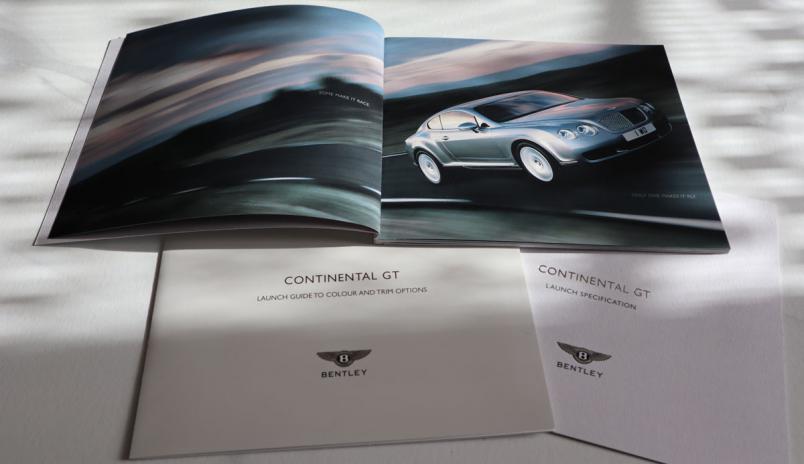 Planned, choreographed, orchestrated, strategised and marketed, with hard work and not a little luck
Planned, choreographed, orchestrated, strategised and marketed, with hard work and not a little luck